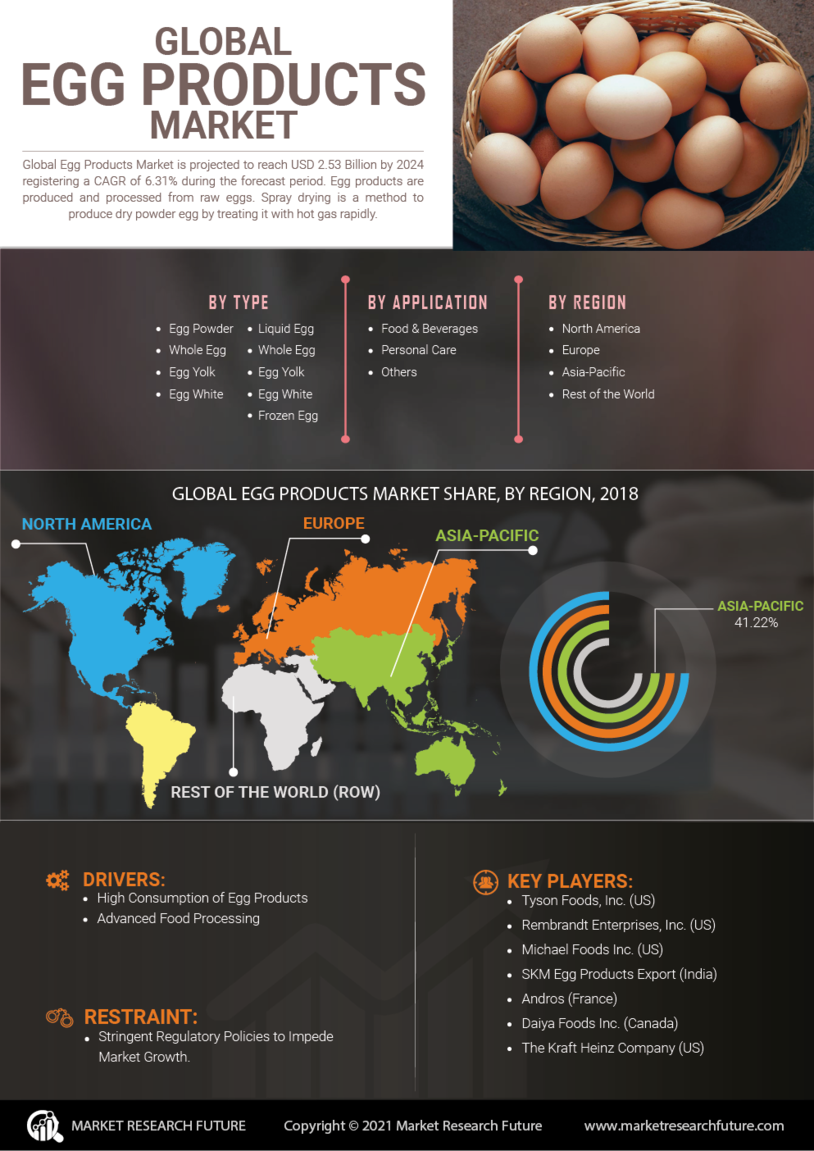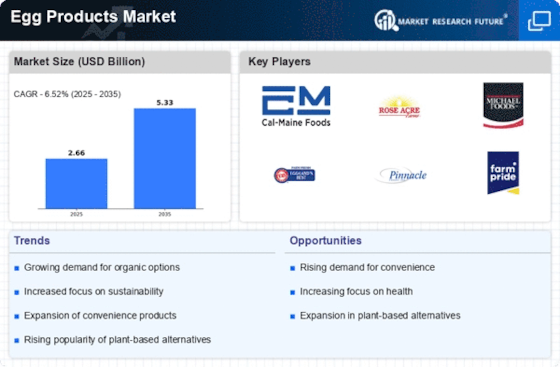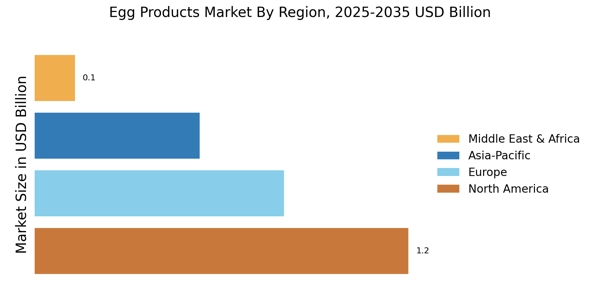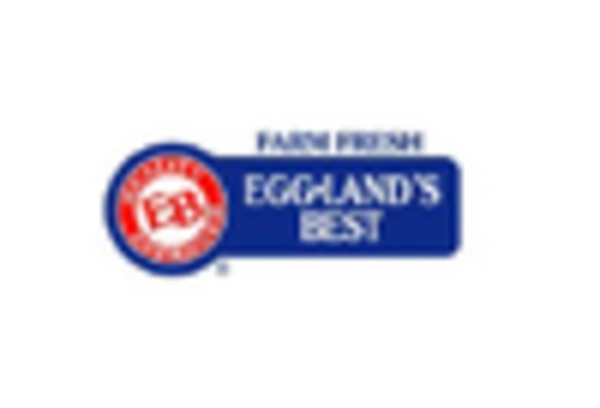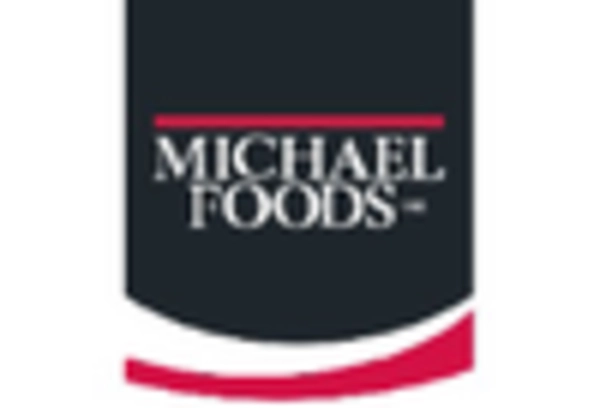Expansion of Food Service Sector
The Egg Products Market is benefiting from the expansion of the food service sector, which includes restaurants, cafes, and catering services. As dining out becomes more prevalent, the demand for versatile and convenient egg products is on the rise. Data indicates that the food service industry is expected to grow significantly, with a projected increase of around 5% annually. This growth is likely to drive the consumption of egg products, as they are integral to various dishes, from breakfast items to baked goods. Additionally, the trend towards brunch culture and all-day breakfast menus in many establishments is further propelling the use of egg products. Consequently, the Egg Products Market stands to gain from this expansion, as food service providers seek to enhance their menus with high-quality, ready-to-use egg products.
Increasing Demand for Protein-Rich Foods
The Egg Products Market is experiencing a notable surge in demand for protein-rich foods, driven by a growing awareness of health and nutrition among consumers. Eggs are recognized as a high-quality protein source, which is appealing to various demographics, including fitness enthusiasts and health-conscious individuals. According to recent data, the protein-rich food segment is projected to grow at a compound annual growth rate of approximately 6% over the next few years. This trend is likely to bolster the egg products sector, as manufacturers innovate to create diverse offerings that cater to this demand. The increasing incorporation of egg products in meal replacements and protein supplements further underscores their significance in the protein market, thereby enhancing the overall growth potential of the Egg Products Market.
Innovations in Egg Processing Technology
The Egg Products Market is witnessing advancements in egg processing technology, which are enhancing product quality and safety. Innovations such as pasteurization and improved packaging techniques are enabling manufacturers to extend the shelf life of egg products while maintaining their nutritional value. Recent statistics suggest that the processed egg segment is growing at a rate of approximately 4% annually, reflecting consumer preferences for convenience and safety. These technological advancements not only improve the overall quality of egg products but also facilitate their incorporation into various food applications, from sauces to baked goods. As a result, the Egg Products Market is likely to benefit from these innovations, as they align with consumer demands for safe and high-quality food options.
Rising Popularity of Plant-Based Alternatives
The Egg Products Market is facing a challenge from the rising popularity of plant-based alternatives, which are increasingly being adopted by consumers seeking vegan or vegetarian options. This trend is indicative of a broader shift towards plant-based diets, with many consumers expressing concerns about animal welfare and environmental sustainability. Market data suggests that the plant-based food sector is growing at an impressive rate, potentially impacting traditional egg product sales. However, this shift also presents opportunities for the Egg Products Market to innovate and diversify its offerings, such as developing hybrid products that combine egg and plant-based ingredients. By addressing consumer preferences for both traditional and alternative protein sources, the Egg Products Market may find ways to coexist and thrive alongside the growing plant-based trend.
Global Trade Dynamics and Supply Chain Factors
The Egg Products Market is influenced by global trade dynamics and supply chain factors that affect the availability and pricing of egg products. Fluctuations in feed prices, trade policies, and transportation costs can significantly impact production costs and, consequently, retail prices. Recent trends indicate that supply chain disruptions have led to increased prices for egg products, which may affect consumer purchasing behavior. However, the industry is also adapting by exploring local sourcing and alternative supply chain strategies to mitigate these challenges. As trade dynamics evolve, the Egg Products Market must remain agile to navigate these complexities, ensuring that it can meet consumer demand while maintaining competitive pricing.
